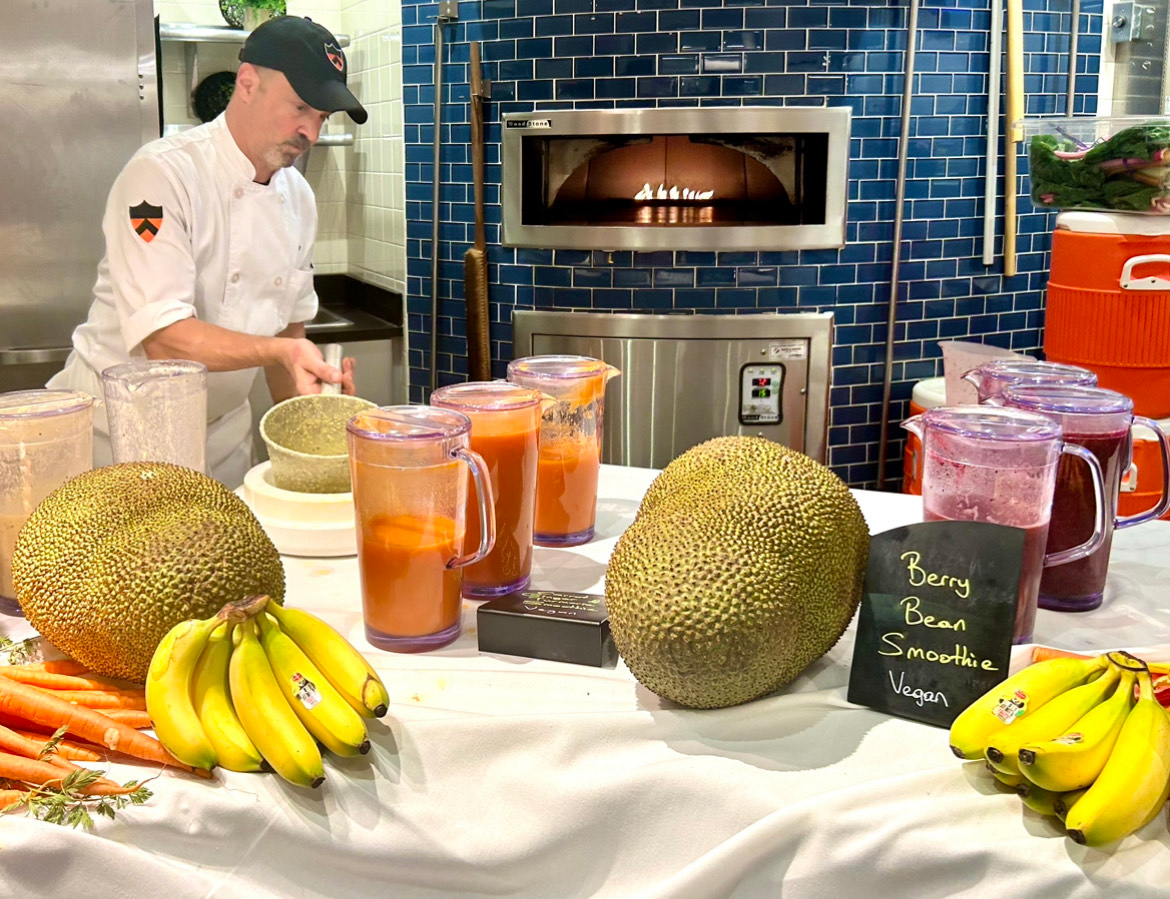Jackfruit Quesadillas, Mushroom Steaks Served as Dining Diversifies
The focus is not only on the food itself, but also what it can teach us about other ways of being
“If you can sit down together and break bread,” said Siddiqui, “this world would be much more peaceful. There are so many commonalities.”
This year’s events included a November tasting with Native American chef Walter Whitewater and Lois Ellen Frank, a Native foods historian, to celebrate Native American Heritage month and a chef’s table for Black History Month with Valerie Erwin ’79, a Philadelphia chef and social activist. These programs included group discussions and menus curated to reflect authentic cuisines. Siddiqui said the focus is not only on the food itself, but also what it can teach us about other ways of being.
“Sustainability was done by Native Americans,” Siddiqui said. “If you look at their history, what they ate, how they ate, they used everything from Earth for usage and not waste. Sustainability is not a new word, and that is something our students can learn through food.”Inside the dining halls, regular programming has expanded to allow for greater representation. The Asian station in the Yeh West Dining Hall offers dumplings daily, while Mexican, Indian, and French cuisines can be found throughout the dining halls. In March, a special menu incorporated dishes from the national cuisines of each member of the Campus Dining staff.
According to Siddiqui, this continues Princeton’s mission to “bring people together and exchange ideas in different places around the campus.” Siddiqui is overseeing pilot projects to make dining more accessible and inclusive, including a plant-based day in the Forbes Dining Hall on April 13, where students were invited to “veg out” at breakfast, lunch, and dinner by trying out exclusive recipes developed by Forbes chefs. Among the sweet and savory specials, students found jackfruit quesadillas, mushroom steaks with charred onions, cumin scented rainbow carrots, and a fresh smoothie bar with flavors ranging from mango kale to berries and beans.
Campus Dining also has been working more closely with local producers, supporting small, minority-owned businesses in the Princeton area by paying ahead for a given quantity of produce to allow businesses to expand their production capacities and grow. GeoGreens, located in Hamilton, New Jersey, is one of the first businesses to enter into this partnership with Princeton.
“If you can show that type of relationship to banks, that can go a very long way,” said Desmond Hayes, the founder of GeoGreens. “The fact that Princeton dining wants to continue working together and want to help us grow and supply them, that helps us a lot.”











No responses yet